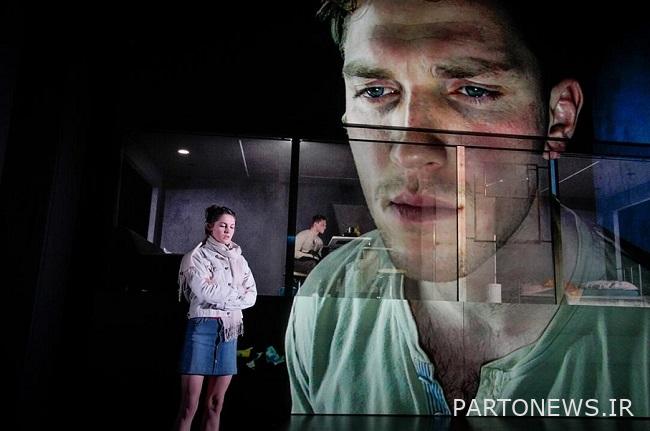About the important events of Iranian theater in 1400 / In search of identity 4:48

Seyed Hossein Rasouli: I consider the three plays “Bahram Beizai” in the United States, “Amir Reza Kouhestani” in Germany and “Ali Shams” in Iran to be the most important theatrical events in 1400.
Theater News Base: Dariush Shaygan’s most famous book was The New Enchantment: A Forty-Piece Identity and Mobile Thinking, in which the author discusses his ideas about Iranian culture and thought. Shaygan was born to an Azerbaijani father and a Georgian mother, whose father was Shiite and whose mother was Sunni. At the age of 16, he traveled to England, Italy, and Switzerland, where he learned English, German, and French, during which time he learned Sanskrit. “As far back as I can remember, I lived in a fragmented world where nothing was right,” he wrote in a letter to future generations. “Scattered and incongruous fragments of his knowledge were patched together.”
Shaygan believed that the search for identity meant bridging between different cultures; So, on the one hand, he translated the works of Charles Baudelaire and Marcel Proust for the Iranians, and on the other hand, he introduced the works of Hafez, Saadi, Khayyam, Rumi and Ferdowsi in the West. Shaygan believes that the cultural identity of human beings today is “forty” and “reference”.
The deadly coronary heart disease has also created an “exceptional situation” for history. Such a situation has developed in such a way that it has changed and differentiated our mental and physical states. This situation may be seen in the play “Psychosis: 4:48” by Sarah Kane; Because he keeps talking about doctors. Artists are playing chess with Corona, and the doctors’ feet are open to everyone’s life, a symbol of the power / knowledge discourse that Michel Foucault has articulated. Doctors who have mastered our body and health and should also allow theater performances; So they have also mastered the production of art. “Mysterious Doctors, Reasonable Doctors, Strange Doctors, Doctors Who Do You Think If You Do Not Show Evidence and Reason, You Will Be Part of Their Damn Disease, Doctors Who Ask the Same Question,” Kane wrote in his play. I think my identity today is quite forty and I am in a state of “psychosis: 4:48”. Gradually – and in connection with this discussion – I consider the three plays “Bahram Beizai” in the United States, “Amir Reza Kouhestani” in Germany and “Ali Shams” in Iran to be the most important theatrical events in 1400.
Time never returns
“Stanford University” for three consecutive days (September 5, 6 and 7, 1400), the play “Crossroads” written and directed by “Bahram Beizai” was shown to everyone on the university’s YouTube channel. “Crossroads” is the last play written by Beizai in Iran (2009) and its text was published in the winter of 2009; But in the first two weeks of the spring of 1397, it was shown at Stanley University’s Rubli Theater. I also wrote a review for its online performance (see Experience Magazine, New Volume and Issue 1) and I think that Mr. Beizaii was very angry with this work and his words were heartbreaking. The main character of this play is a woman named “Nahal Farrokhi” who was a future actress; But from the very beginning her work was removed and now, contrary to the appearance of her daily life, she has become an isolated teacher. Time is very important in this play; Because it is clear from the beginning that the seedling clock is not compatible with other clocks. There is also a character named “Mr. Vakhtashenas” in the play who declares that time cannot be said; Because it’s almost over. Mr. Beizaii means that time never goes back. There were many criticisms of the play and it received a lot of feedback, some of which were liked and some of which were criticized.

Stretching is waiting for Godavi Tehrani
“Amir Reza Kouhestani” and “Mahin Sadri”, inspired by the play “Vitsk” by Georg Bushner, produced a play in Germany, which was titled “Vitsk Disrupted” and was shown online in January 2016. We also saw this show in Iran. After this performance, the couple went to a different rendition of “Waiting for Godot” by “Samuel Beckett”, which was performed in 1399.
Their disrupted performance continued into 1400 and had a large audience. A show that drew various positive and negative reviews from critics. Kouhestani tries to connect his performances to the history and daily life of the present; But a certain formalistic and technical atmosphere prevails in them, instead of crystallizing the social and political concerns of the day. The play “Waiting for Godot” directed by “Amir Reza Kouhestani” is like the dumb little brother of the main play written by “Samuel Beckett”. Kouhestani is very interested in “rewriting” famous texts in the history of theater with his own eyes, which is exactly what “Mohammad Charmshir” does in rewriting popular novels. Mr. Kouhestani’s text has fundamental changes and differences in form and content from Beckett’s text, which has been destroyed by its revolutionary approach and novelty. Perhaps Mr. Kouhestani is trying to do a kind of “contemporaryization” that is a subset of contemporary “dramaturgy.” Apart from technical discussions, Mr. Kouhestani’s influence has been as great as that of Mr. Beizai in Iranian theater.

Fear of the past and the present
The play “Probability”, written and directed by “Ali Shams”, was staged in the winter of 1400 at the Shahr Theater. The present work is full of various references to the past and the present, which tries to joke with everything. “Probability” is an episodic work that refers to the phenomenon of book burning in the history of Iran and depicts the history of Iranian ignorance. Characters such as “Dictionary” and “Donkey” appear in various episodes that symbolize the confrontation between wisdom and irrationality. Ali Shams’s new work has moved away from the realist theater of the conventional storyteller and is narrated in an unconventional and playful context; That is, the present performance has come to life with a postmodern approach, combining a variety of styles, genres, performance styles, and languages. The display of “possibilities” has become a radical work in terms of concept and idea; Because the question of the theater scene is a radical thing that “Ali Shams” has done. The text of “Probability” has become so complicated and dramatized that each actor has to play several roles. The trick comes from Iranian plays and Italian “Comedy Delarte”. “I was looking for a feature in theater that I only found in Shakespeare,” says Peter Brook of the text selection. The characteristic that Shams seeks is present only in his own texts and his performance style is in harmony with his texts. He has taken a postmodern approach in which we see a variety of combinations, including: (1) grotesque, (2) surrealism, (3) absurdity, (4) formalism, (5) the comedy genre, and (6) taziyeh. Most of Europe’s leading theater directors today are producing works that are clearly related to the social conditions of the audience today. I translated an interview with Thomas Ostermeyer a few months ago that said, “Now [و در دوران همهگیری کویید ۱۹] “I am working on the production of the play ‘Oedipus,’ which takes place during the plague and in the city of fever.” Shams is not unaware of establishing such a relationship; Because (1) it puts power against the powerless, (2) knowledge against the ignorant, (3) art against the artless, (4) wisdom against the ignorant, and (5) health against disease. We see a man in special clothes fighting infectious diseases who is spraying on stage and poisoning books. We see a musician pulling his bow on his body and we hear his screams; We see two virgin women writing books on stage and talking about their importance. In the end, I would like to emphasize that the performance of “Probability”, written and directed by “Ali Shams”, was the most important performance of 1400 in the Iranian theater.
///.

